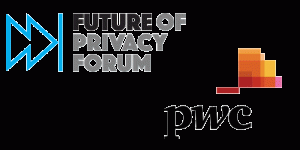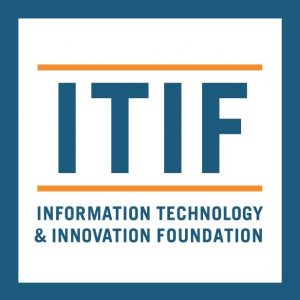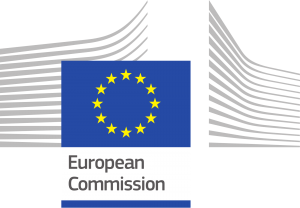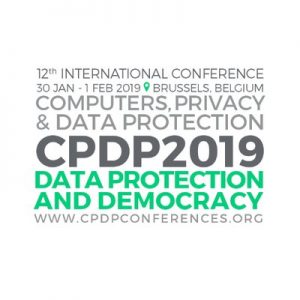Home
Use our global calendar of privacy events to locate an event near you.
FILTER BY

An intentionally flexible city is accessible for every body, everywhere, and every day. People should be able to use things the way that makes the most sense for them, and we should build that flexibility and hackability into our spaces. That could mean adaptable furniture that can be repositioned, regardless of your strength or size, doors that can easily open, without requiring any particular dexterity, or technology that lets you access traffic signal devices with greater ease.
We don’t think one size fits most. One size fits one, and with technology, we can allow for dynamic flexibility in the city environment. Throughout history, the accessibility community has meaningfully pushed the fields of digital technology and computer science forward, and we want to formalize and encourage this throughout Quayside and beyond.
For us, it’s important that we address and begin this conversation now, which is why our third Open Sidewalk will focus on the theme of “The Accessible City”.
We welcome you to come and be part of co-creating a neighbourhood that can work for everyone.

Join the Future of Privacy Forum and PwC for a roundtable: “Data and Privacy for Autonomous Vehicles”
Autonomous vehicles are positioned to transform the future of mobility—a change enabled by new on-board sensors that collect and transmit growing types and quantities of data. While the existence of data in vehicles is not entirely new, autonomous vehicles promise an explosion in the variety, connectivity, volume of such data—raising new and unique considerations around what happens with it. As the automotive industry becomes more data-driven, getting consumer privacy right will become increasingly important.
Monday, September 24, 2018 from 1:30 PM to 4:30 PM in Detroit, Michigan
Industry leaders will discuss:
- Mapping, Geolocation, and Video Data: What unique considerations may need to be applied to these compilations of high resolution and potentially sensitive data—of both the inside and outside of vehicles?
- Monitoring of Vehicles, Drivers, and Passengers: What are best practices for fleet monitoring to ensure safety and cleanliness of vehicles while preserving passenger privacy?
- Data Sharing: Given that many consider data sharing crucial to AV development, what considerations should be taken into account around how to do so while protecting privacy – both among industry, with municipalities, and with researchers?
- Law Enforcement Access: How do we balance access during exigent circumstances and through legal process with enhanced sensitivities around mobility data?
- Changing Expectations of Privacy: Do consumers’ expectations of privacy diminish in the post-ownership, shared vehicle model? How should we think about privacy considerations for members of the public whose movements may be tracked with the externally-facing videos or mapping that may be common with AVs?
These are all early-stage questions, so we are convening industry leaders for an off-the-record discussion on how to tackle these issues moving forward.
Please contact Lauren Smith at [email protected] to request an invitation.

The European Union’s new privacy law, the General Data Protection Regulation (GDPR), went into effect on May 25, 2018. Since then, a number of privacy advocates have called for the United States to follow suit and pass its own comprehensive data protection legislation that meets or exceeds the standards in the GDPR. Yet critics of the GDPR maintain that these regulations would impose significant costs on the economy and degrade the consumer experience online. Pressure is mounting for lawmakers to take a position, and the Trump administration is considering its own set of privacy principles that it may send to Congress.
Join ITIF for a no-holds-barred debate about what the future of U.S. privacy law should look like. The debate will be moderated by Axios Managing Editor Kim Hart.
This event will be live streamed.
Follow the discussion on Twitter with the hashtag #ITIFprivacy.

***FINAL CALL FOR PAPERS: HARD SUBMISSION DEADLINE MAY 27, 2018***
1. AIMS AND GOALS —————–
Privacy in statistical databases is about finding tradeoffs to the tension between the increasing societal and economical demand for accurate information and the legal and ethical obligation to protect the privacy of individuals and enterprises which are the respondents providing the statistical data. In the case of statistical databases, the motivation for respondent privacy is one of survival:
statistical agencies or survey institutes cannot expect to collect accurate information from individual or corporate respondents unless these feel the privacy of their responses is guaranteed.
Beyond respondent privacy, there are two additional privacy dimensions to be considered: privacy for the data owners (organizations owning or gathering the data, who would not like to share the data they have collected at great expense) and privacy for the users (those who submit queries to the database and would like their analyses to stay private).
Co-utility has shown to provide sustainable solutions to user privacy.
“Privacy in Statistical Databases 2018” (PSD 2018) is a conference sponsored and organized by the UNESCO Chair in Data Privacy
(http://unescoprivacychair.urv
.cat) with proceedings published by Springer-Verlag in Lecture Notes in Computer Science. The purpose of PSD 2018 is to attract world-wide, high-level research in statistical database privacy.
PSD 2018 is a successor to
PSD 2016 (Dubrovnik, Sep. 14-16, 2016
https://unescoprivacychair.urv
.cat/psd2016/), PSD 2014 (Eivissa, Sep. 17-19, 2014, http://unescoprivacychair.urv. cat/psd2014/), PSD 2012 (Palermo, Sep. 26-28, 2012,
http://unescoprivacychair.urv.
cat/psd2012), PSD 2010 (Corfu, Sep. 22-24, 2010, http://unescoprivacychair.urv.
cat/psd2010), PSD 2008 (Istanbul, Sep. 24-26, 2008,
http://unescoprivacychair.urv.
cat/psd2008), PSD 2006 (Rome, Dec. 13-15, 2006, http://crises-deim.urv.cat/psd
2006) and PSD 2004 (Barcelona, June 9-11, 2004, http://crises-deim.urv.cat/psd
2004), all with proceedings published by Springer in LNCS 9867, LNCS 8744, LNCS 7556, LNCS 6344, LNCS 5262, LNCS 4302 and LNCS 3050, respectively. Those eight PSD conferences follow a tradition of high-quality technical conferences on SDC which started with “Statistical Data Protection-SDP’98”, held in Lisbon in 1998 and with proceedings published by OPOCE, and continued with the AMRADS project SDC Workshop, held in Luxemburg in 2001 and with proceedings published in Springer LNCS 2316.
Like the aforementioned preceding conferences, PSD 2018 originates in Europe, but wishes to stay a worldwide event in database privacy and SDC. Thus, contributions and attendees from overseas are welcome.
2. ORGANIZATION —————
PROGRAM COMMITTEE (TO BE CONFIRMED AND POSSIBLY WITH ADDITIONAL NAMES)
Jane Bambauer (University of Arizona, USA) Bettina Berendt (KU Leuven, Belgium) Elisa Bertino (CERIAS, Purdue University, USA) Aleksandra Bujnowska (EUROSTAT, European Union) Jordi Castro (Polytechnical University of Catalonia) Anne-Sophie Charest (Université Laval, Québec, Canada) Josep Domingo-Ferrer (Universitat Rovira i Virgili, Catalonia) Joerg Drechsler (IAB, Germany) Khaled El Emam (University of Ottawa, Canada) Mark Elliot (Manchester University, UK) Sarah Giessing (Destatis, Germany) Sara Hajian (Eurecat Technology Center, Catalonia) Alan Karr (CoDA, RTI, USA) Julia Lane (New York University, USA) Bradley Malin (Vanderbilt University, USA) Laura McKenna (Census Bureau, USA) Gerome Miklau (University of Massachusetts-Amherst, USA) Krish Muralidhar (The University of Oklahoma, USA) Anna Oganyan (National Center for Health Statistics, USA) Christine O’Keefe (CSIRO, Australia) Jerry Reiter (Duke University, USA) Yosef Rinott (Hebrew University, Israel) Pierangela Samarati (University of Milan, Italy) David Sánchez (Universitat Rovira i Virgili, Catalonia) Eric Schulte Nordholt (Statistics Netherlands) Natalie Shlomo (University of Manchester, UK) Aleksandra Slavkovic (Penn State University, USA) Jordi Soria-Comas (Universitat Rovira i Virgili, Catalonia) Tamir Tassa (The Open University, Israel) Vicenc Torra (Skövde University,
Sweden) Vassilios Verykios (Hellenic Open University, Greece) William E.
Winkler (Census Bureau, USA) Peter-Paul de Wolf (Statistics Netherlands)
PROGRAM CHAIR
Josep Domingo-Ferrer (UNESCO Chair in Data Privacy, Universitat Rovira i Virgili, Catalonia)
GENERAL CHAIR
Francisco Montes Suay (Universitat de València, Spain)
ORGANIZATION COMMITTEE
Joaquín Garcia-Alfaro (Télécom SudParis, France) Jesús Manjón (Universitat Rovira i Virgili, Catalonia) Romina Russo (Universitat Rovira i Virgili, Catalonia)
3. TOPICS OF INTEREST ———————
Topics of interest include but are not limited to:
– New anonymization methods for tabular data
– New anonymization methods for microdata (including non-conventional microdata types such as trajectories, graphs, etc.)
– Best anonymization practices for tabular data
– Best anonymization practices for microdata
– Co-utility for privacy preservation
– Big data anonymization
– Streaming data anonymization
– Decentralized anonymization
– Balancing data quality and data confidentiality in SDC
– Differential privacy and other privacy models
– SDC transparency issues
– Onsite access centers – Remote access facilities – SDC software
– Estimating disclosure risk in SDC
– Record linkage methods
– Real-life disclosure scenarios in EU-member states and abroad
– Privacy preserving data mining (both cryptographic and non-cryptographic)
– Private information retrieval
– Privacy in web-based e-commerce
– Privacy in healthcare
– Privacy in official and corporate statistics
– Other data anonymization issues
4. SUBMISSIONS ————–
Full papers containing either original technical contributions or high-quality surveys on the above topics or on related topics are sought.
Camera-ready versions of
accepted papers should be prepared using the LaTeX2e style or the Word template of Springer Verlag Lecture Notes in Computer Science. For LaTeX2e, a macro package llncs.zip and an example file typeinst.zip can be downloaded from
http://www.springer.com/comput
er/lncs?SGWID=0-164-6-793341-0 For Microsoft Word, a template word.zip can be downloaded from the same page above.
We encourage authors to use the above formats already for their submissions.
The submission Web page for PSD 2018 is
https://easychair.org/conferen
ces/?conf=psd2018
LENGTH OF SUBMISSIONS.
Using the above format with 11 point font, the paper should be at most 12 pages excluding bibliography and appendices, and at most 16 pages total.
Committee members are not required to read appendices; the paper should be intelligible without them.
Submissions not meeting these guidelines risk rejection without consideration of their merits.
5. PROCEEDINGS ————–
Among PSD 2018 accepted papers, a selection will be made based on quality and coverage and the selected papers will be published in the Lecture Notes in Computer Science (LNCS) series by Springer.
This follows the tradition of the previous PSD conferences.
The remaining accepted papers will be published in a CD with an ISBN.
It is possible to submit a paper directly for the CD, which benefits from a later submission deadline (see CD-only dates below).
The form of publication of an accepted paper will be clearly specified in the acceptance message.
Both the LNCS volume and the CD will be *available at the conference*.
6. IMPORTANT DATES ——————
Submission deadline: **MAY 27, 2018**
Acceptance notification: June 29, 2018
Proceedings version due: July 9, 2018
Conference: Sep. 26-28, 2018
CD-only submission deadline: July 9, 2018 CD-only acceptance notification: July 30, 2018 CD-only proceedings version due: Aug. 10, 2018
7. VENUE AND TRAVEL ——————-
The conference will take place at the Botanical Garden of the Universitat de València, located in the old city of Valencia.
http://www.jardibotanic.org/in
dex.php?apid=presentacio-226
Further venue, travel and accomodation information will be posted in due course at http://unescoprivacychair.urv.
cat/psd2018
A number of travel grants are made available by the UNESCO Chair in Data Privacy, especially for authors and delegates from transition countries.
Information on grants is posted in the conference web site.
8. REGISTRATION —————
Registration information will be posted no later than June 2018 at http://unescoprivacychair.urv.
cat/psd2018

With the continuous proliferation of diverse Internet-based computing paradigms, large amounts of data containing privacy-sensitive information are being constantly published, collected, processed, and archived. This trend will be further fueled up by the new development of IoT (Internet of Things) technologies, smart cities, e-health, e-commerce, social and behavioral studies, social networking, edge computing, and cloud computing. As a result, fast-growing concerns about data privacy from academia as well as industry emerge in recent years, which motivate researchers and practitioners to think about questions such as how to guarantee that the collected or published data are not misused; how to ensure that data processing does not disclose any sensitive information; how to store the data securely for privacy protection; how to define new privacy policies that allow desirable services; and how to make sure that privacy policies issued by government and industry are not violated.
The IEEE Symposium on Privacy-Aware Computing (IEEE PAC) brings together experts from academia, government, and industry to present and discuss recent advances and new perspectives on related research and development in privacy-aware computing. We invite original theoretical contributions as well as system implementation/experimentation works on all topics related to “making computing privacy-aware” for privacy protection. Particularly, IEEE PAC solicits unpublished results in privacy threats and vulnerabilities of emerging applications for various computing platforms (mobile, IoT, cloud, social network, etc.), privacy-aware algorithms for big data analytics and networking, novel methodologies for privacy-protection (modern cryptography, game theory, etc.), policies for privacy-aware computing, etc.
Important Dates
- Submission Deadline: 04/30/2018
- Notification: 06/30/2018
- Camera-Ready Submission Date: 07/20/2018

The rise of Artificial Intelligence (AI) is bringing unprecedented technological and legal complexity, triggering a convergence of traditional legal domains and challenging the application of basic legal principles.
As computational systems blur the lines between human and machine, a close dialogue among data scientists, legal experts and other disciplines is required to develop new digital strategies and evolve legal frameworks for society. With experts from academia, legal practice, civil society and scientists, the Microsoft Data Science & Law Forum will explore in roundtables the various dimensions of AI: the twists AI will bring to the legal system; how it transforms competition, IP and liability; and the ethical demand to benefit mankind, and for human understanding and oversight. With its broad implications, AI creates the need for a multi-disciplinary, multicultural approach to the practice of law.
As the EU reflects on its next generation digital strategy, we hope to collectively contribute to the adoption of responsible approaches to AI, based on an improved understanding of its legal implications.

The rise of artificial intelligence is dramatically shaping all aspects of human existence. While the United States took the lead in the early revolution, American de facto leadership is slipping away as other countries catch up to – and in some cases even surpass – American progress. As the technology advances, what do American leaders across the spectrum of sectors and industries need to do to maximize the upside for future generations while minimizing the disruptions to democracy?
Featured Speakers:
Robert Atkinson, President, Information Technology and Innovation Foundation
Ian Cinnamon, Co-founder and President, Synapse Technology Corporation
Jack Clark, Strategy and Communications Director, OpenAI
France Córdova, Director, National Science Foundation
Dean Garfield, President and CEO, The Information Technology Industry Council
Denise Zheng, Vice President of Policy, Business Roundtable
More speakers and full agenda to be announced.

Thought Leaders
The Privacy + Security Forum breaks down the silos of privacy and security by bringing together seasoned thought leaders.
Depth + Rigor
Sessions and workshops are rigorous and deliver practical takeaways for all participants.
Interactive
Forum speakers engage the highly experienced audience in discussion, scenarios, and hands-on activities.
Submit a Proposal
If you are interested in proposing a speaker or session at the Privacy + Security Forum – October 3-5, 2018, please submit the form below by March 31, 2018.
Speakers and sessions will be selected on a rolling basis depending on the fit with the event. If we do not think your proposal will fit, we will let you know soon. If there is a delay in accepting your proposal, this means that we likely are still considering it and seeing how the event is shaping up to figure out if there is a fit.
The time it takes us to decide on acceptance should not be any indication of the quality of the proposal.


